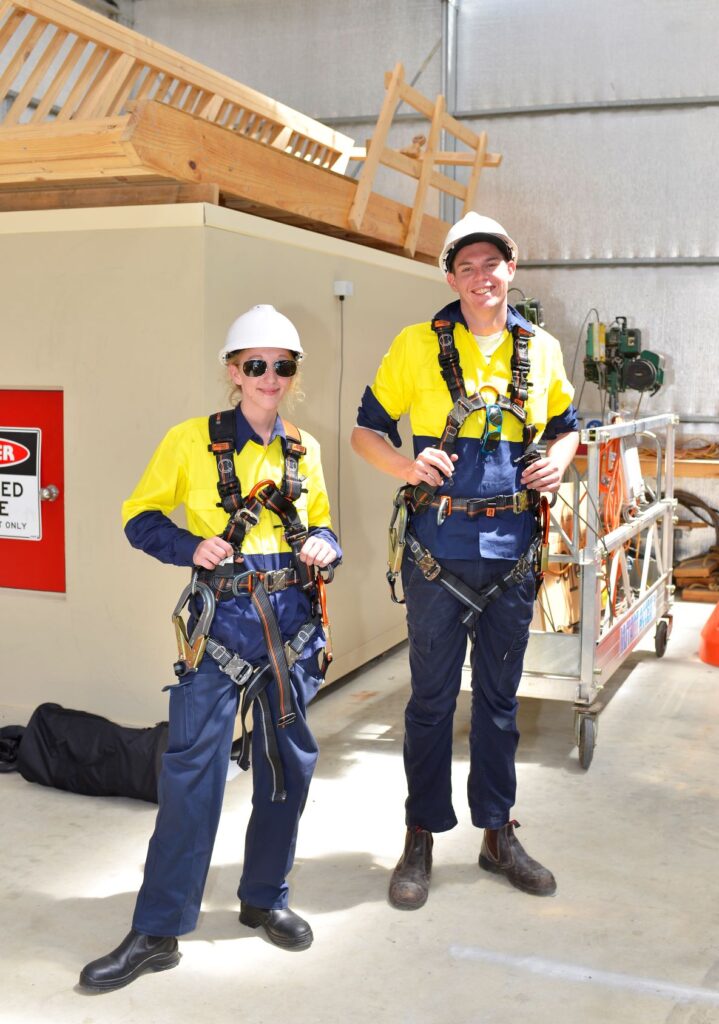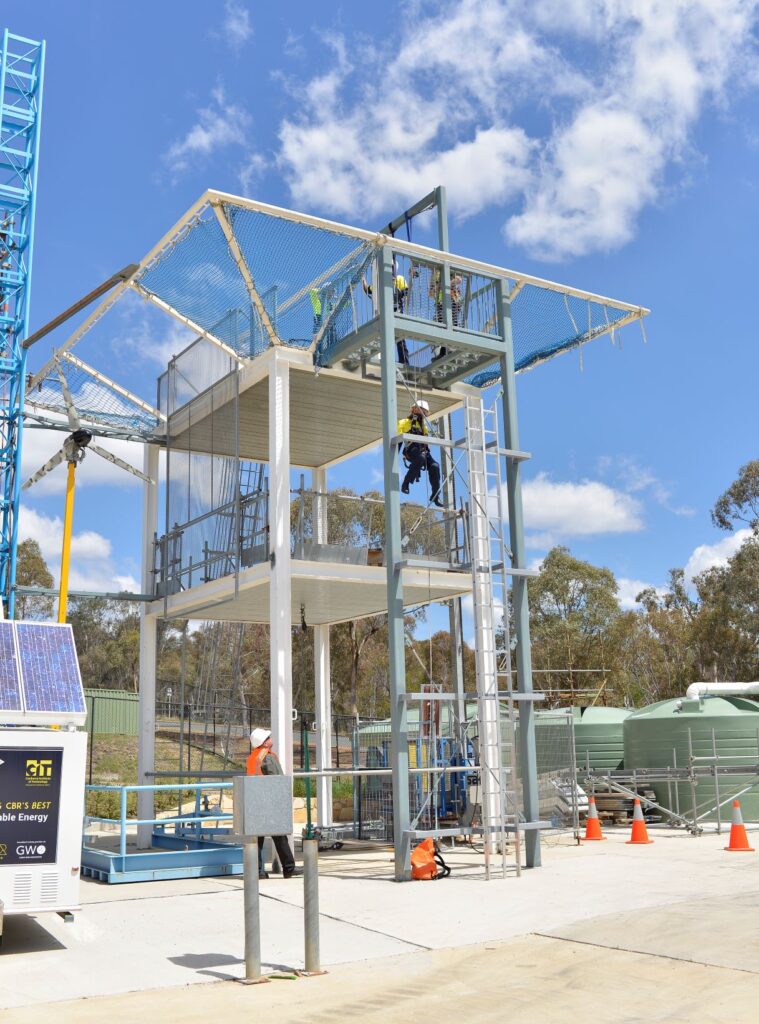
The next generation of wind energy workers is coming to Canberra from across the country and the world to participate in the CIT’s wind training courses.
Since acquiring global accreditation in December 2017, 45 current and future wind industry professionals have received technical and safety training at the CIT Bruce campus.
ACT Minister for Climate Change and Sustainability Shane Rattenbury said that with the renewable energy sector set to undergo significant growth in the not too distant future, it’s important to do something about it.
“We need to make sure we’re creating a workforce; the renewable industry is growing massively in Australia.
“Over the next couple of years, the renewable energy supply in the Australian grid is expected to grow from 9% to around 23%, which gives an indication of how many projects are in the pipeline, and how much development is happening,” he said.
Minister Rattenbury said that in pursuing the Government’s 100% renewable electricity target, the ACT has signed a number of significant contracts that include caveats to benefit the local economy.

“As part of that we’ve required a local investment component and we’ve seen around $500 million over the lifetime of those projects being invested in the ACT, which includes things like this training course, but also those companies basing their headquarters here in Canberra.”
Minister Rattenbury said running the globally accredited wind training course at CIT is further testament to Canberra being a leader in the renewables space.
“It means these young people can potentially go work overseas, but also that we’ve got the highest standards here in Australia.”
The technical training comprises a four-day course that covers modules in wind turbine mechanical, electrical and hydraulic disciplines.
The basic safety training is a five-day course covering modules in first aid, manual handling, fire awareness and working at heights.
“We need to make sure the students have the right safety training, comfort with working in heights, and making sure they have the skills to cope if there’s an emergency at those heights,” Minister Rattenbury said.
For more:








